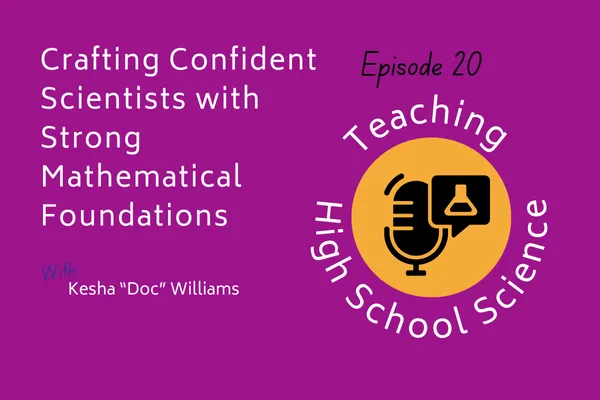On The Pod
I want to hear from you!
Join the dialog and share your comments, experiences, and questions by visiting the Facebook link in each Podcast!

E20 Crafting Confident Scientists with Strong Mathematical Foundations
In this episode, I dive into the essential math skills needed before introducing specific sciences in high school education. As a former biochemist turned high school science teacher and private tutor, I'm here to guide you through the math requirements for biology, chemistry, and physics.
Let's start with biology. Yes, there's math involved! Students need a solid grasp of ratios, converting them into fractions and percentages, especially in genetics. Honors students should also be familiar with quadratic equations for solving Hardy-Winberg problems, while AP Biology delves into statistics, particularly Chi-square.
Moving on to chemistry, it gets a bit more complex. Students must understand the order of operations, scientific notation, and algebraic equations for heat transfer and equilibrium. Logarithmic functions and quadratic equations are also crucial for advanced chemistry.
In physics, math skills parallel those in chemistry, with added trigonometry for solving two-dimensional force and motion problems. Significant figures are vital in both chemistry and physics, particularly for honors and advanced levels.
Addressing a common question I get from parents: can math skills be taught alongside science concepts? While possible, it's not ideal.
Building a solid foundation in basic math concepts before layering on science ensures better comprehension and reduces complexity for students.
To ease the integration of math into science, I recommend reviewing relevant math skills before delving into science topics.
This approach provides students with a familiar base to attach new information, enhancing understanding and reducing anxiety.
Leaving gaps in math skills can lead to a dislike for science. Mastering necessary math skills beforehand ensures a holistic and enjoyable learning experience for science students.
Join the conversation and share your experiences with math and science in the comments area below. Subscribe now to the Teaching High School Science podcast for more tips and ideas to make high school science an exciting journey of exploration and achievement. Remember, curiosity leads to endless possibilities.
All Rights Reserved 2023 - (C) TheScienceMentor.com -TM | Terms & Conditions | Privacy Policy | Disclaimers
